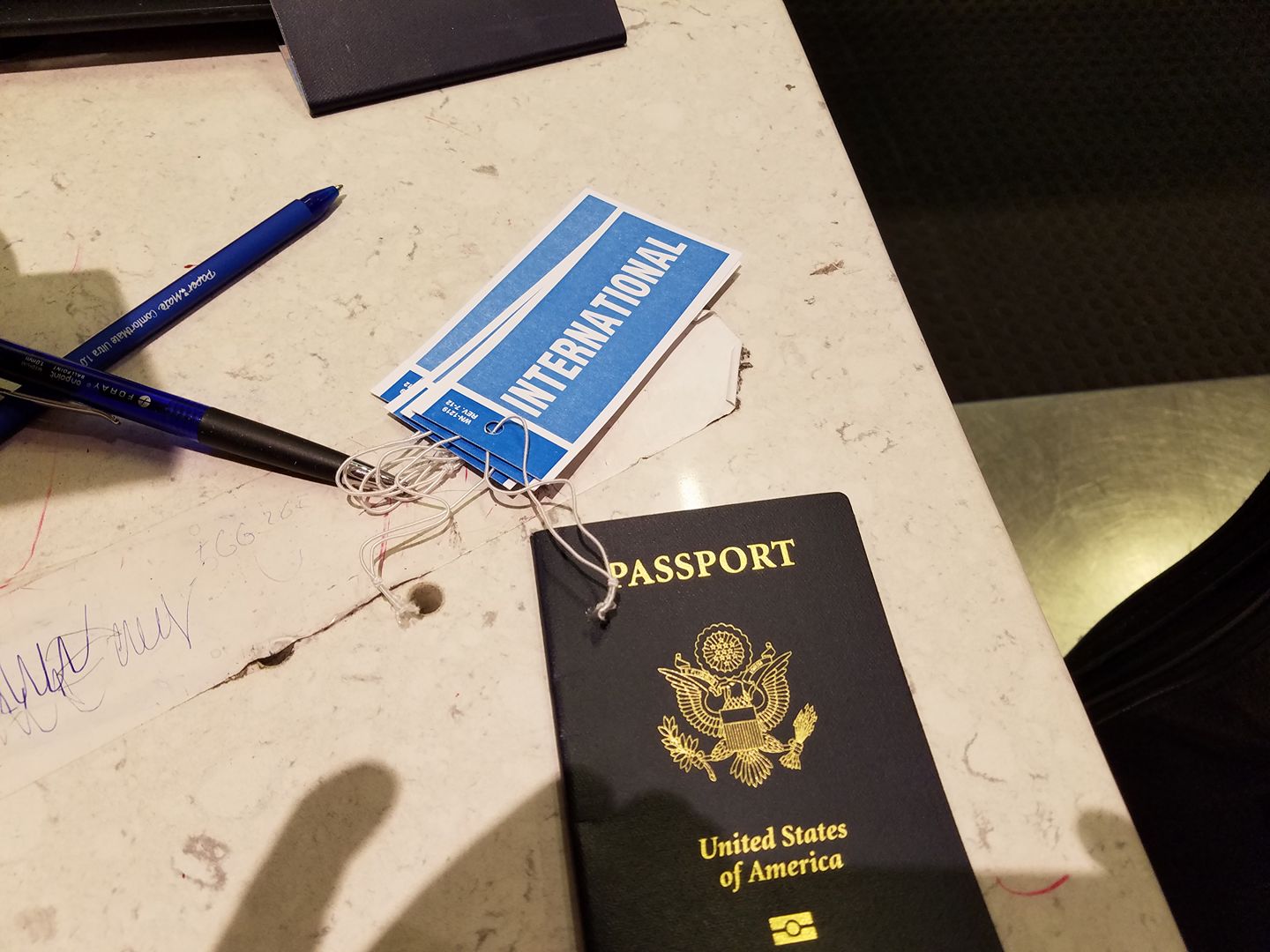By Gail Cole
If you’re old enough to have secured lodging without the help of the internet, you understand how online travel agencies have revolutionized the hospitality industry. Online travel agencies give consumers greater choice and more control over bookings, and they help businesses connect with customers to fill vacancies. But for the online travel agencies themselves, this service comes at a cost: a virtual world of tax obligations.
This post will answer the following five questions to help you navigate tax compliance for online travel agency transactions:
- How do online marketplace facilitator laws affect online travel agencies?
- Who’s responsible for collecting sales tax for online travel agency transactions?
- How does tax work for online travel agencies and marketplaces like Airbnb, Priceline, and Vrbo?
- What are the tax compliance challenges for online travel agencies?
What is an online travel agency? And what isn’t?
An online travel agency (OTA) is a web-based marketplace where consumers can research and book a variety of travel services, including, but not limited to, lodging. An online travel agency is not a metasite or similar platform that merely advertises for businesses without engaging directly or indirectly in transmitting communications and payments. Rather, an online travel agency provides a platform that allows multiple businesses to distribute accommodations and facilitate bookings.
Airbnb and Vrbo are also marketplaces but aren’t technically online travel agencies because they don’t provide the breadth of services offered by travel agencies online: cruises, flights, motor vehicles, etc. Nevertheless, we’re including them in this article because our focus is online lodging intermediaries and the tax challenges they face.
The relationship between an online travel agency and merchant can work in a couple of different ways: The online travel agency can be the merchant, or the hotel (or other lodging provider) can be the merchant. If the OTA is the merchant, consumers pay when they book; the rate type in this scenario is known as the prepay rate or merchant hotel rate. If the hotel is the merchant, consumers pay when they check in and the rate is known as the post-pay rate, agency rate, or hotel-collect rate.
Identifying the merchant of record is a key factor because it determines who’s liable for what taxes.
It’s also critical to determine whether an online travel agency or lodging platform is a “marketplace” for tax purposes. If you’re classified as a marketplace facilitator, you may be subject to marketplace facilitator laws and so may need to pay tax on the net rate as well as on your markup (or margin). If you’re not classified as a marketplace, for tax purposes, you may only need to pay taxes on your markup.
Lodging intermediaries are constantly evolving in response to changing consumer demand: Couchsurfing is a place to find “friends you haven’t met yet” who’ll let you crash at their place;
Hipcamp is an online marketplace for “tent camping, RV parks, cabins, glamping, and more;” and the list goes on and on. “As the industry grows and evolves,” notes a 2022 State Tax Research Institute report, “the tax issues become more prevalent.”
How do online marketplace facilitator laws affect online travel agencies?
Some marketplace facilitator laws apply to certain online travel agencies or other lodging intermediaries. Some don’t. To understand why, it’s helpful to know the marketplace facilitator law origin story.
Marketplace facilitator laws were created to close a loophole. When states first required Amazon to collect and remit sales tax, Amazon dutifully did so. (Eventually.) But at first the online mega marketplace didn’t collect and remit sales tax on behalf of its third-party sellers, and it argued that it didn’t have to. It wasn’t the merchant in third-party transactions, it reasoned; it was merely the facilitator.
Amazon had a point, frustrating though that was for states. So, states developed marketplace facilitator laws that make online platforms the merchant for all transactions made through the platform. As the deemed seller the marketplace is responsible for collecting and remitting sales tax for third-party transactions as well as direct sales.
Because the initial focus of most marketplace facilitator laws was Amazon and similar marketplaces hawking things, most state marketplace facilitator laws didn’t reference online travel agencies. Gradually, that’s changing.
Marketplace facilitator laws in some states now specify “marketplace” includes a lodging marketplace or online travel agency, and the lodging marketplace or online travel agency is responsible for collecting and remitting sales and/or lodging taxes on behalf of the lodging providers using the platform. As of October 1, 2022, for example, Virginia requires online travel agencies to collect and remit applicable state and local taxes on room charges and fees. In other words, the online travel agencies generally must withhold tax on the net as well as their margin.
Conversely, marketplace facilitator laws in some states specify that online accommodations or lodging platforms are not marketplace facilitators and therefore aren’t liable for collecting and remitting taxes on the net amount. That’s the case in Washington state. However, online travel agencies are usually still liable for tax on their markup.
Regrettably, marketplace facilitator laws in some states don’t say one way or another. And sometimes tax requirements differ under different circumstances.
In Michigan, for example, an online travel agency generally isn’t required to collect and remit applicable accommodations taxes on the net rate so long as the accommodations provider itself is registered for Michigan sales tax. If the accommodations provider is not registered for sales and use tax in Michigan, as some short-term rental hosts are not, the online travel agency that facilitates the sale generally is required to collect and remit the tax due on the net rate. At a minimum, the OTA would generally need to pay the tax on their markup.
In Kansas, marketplace facilitators must collect and remit tax on third-party lodging (on the net rate), but not the net rate for hotel accommodations. Again, such marketplace facilitators are typically liable for the tax on their markup.
Who’s responsible for collecting sales tax for online travel agency transactions?
It depends on the taxing jurisdiction, the law, and the tax itself as well as who is the merchant of record and whether a markup is added.
Whenever multiple parties are involved in the sale or rental of accommodations, it can be difficult to determine which party is responsible for collecting and remitting the applicable taxes. “The online travel company or short-term rental marketplace is probably responsible for some of the taxes due,” explains Oliver Hoare, General Manager of Lodging and Beverage Alcohol at Avalara, “it just depends on how much. The margin only? Or the margin and the net?”
The lack of clarity can lead to the undercollection or overcollection of tax.
Marketplace facilitator laws may help, as noted above, but laws and tax obligations vary from state to state. Indiana requires online travel agencies and other marketplace facilitators to collect and remit sales tax and applicable county innkeeper’s tax on behalf of sellers (on the net and the margin). But in Washington, a business providing online travel agency services for short-term lodging is not a marketplace facilitator and therefore generally isn’t required to collect and remit lodging taxes on the net — only on the margin.
Marketplace facilitator laws aside, the most critical factor for tax liability purposes is identifying the merchant of record and whether they add a markup. “This is a vital point,” explains Hoare.
Who’s the merchant of record? What’s the markup got to do with it?
The merchant of record is the entity responsible for processing payments and collecting, remitting, or paying some or all of the taxes due on a transaction. Depending on the nature of the agreement, this description could refer to the online travel agency, a third-party supplier, or the lodging provider itself.
For example, an OTA could pay a wholesale rate for supply obtained from WebBeds (or a similar wholesaler) and then add a markup to the final consumer price. In this case, the online travel agency is the merchant of record. At a minimum, it would have to collect and remit tax on the markup, as no one else knows how much the markup is. If the online travel agency is classified as a marketplace facilitator for tax purposes and processes payments on behalf of the lodging provider, it would also be responsible for withholding and remitting the tax due on the net rate.
(Some lodging providers want the online travel agency to process payments; others prefer customers to pay at check-in.)
In short, an online travel company considered a marketplace for tax purposes would likely be responsible for taxes on both the net rate (or wholesale rate) and its markup. If there’s no markup and the platform doesn’t process payments or meet the definition of a marketplace, it may not be liable for any transaction tax at all.
So, you see, it depends.
How do local occupancy taxes complicate compliance?
There’s another complicating factor, as well. Even if an online travel agency is responsible for some taxes, it may not be responsible for collecting and remitting all the taxes due on the accommodations they facilitate.
Some states require online travel agencies to collect and remit state-level taxes on accommodations as well as any local taxes administered by the state taxing authority. However, online lodging marketplaces often aren’t required to collect and remit the local lodging taxes administered by city and/or county tax officials. In such situations, the lodging provider, host, or property manager is liable for the tax.
According to a 2022 survey by the National League of Cities, 82% of cities surveyed require short-term rental hosts to remit taxes directly to the city. Only 5% of the survey respondents require the online platform to collect and remit local taxes on behalf of the hosts.
How does tax work for online travel agencies and marketplaces like Airbnb, Priceline, and Vrbo?
As explained above, some states require online travel agencies and marketplaces like Airbnb, Expedia, and Vrbo to collect and remit at least a portion of the tax due (e.g., state-administered taxes), provided they meet the definition of a marketplace facilitator. Other states don’t — though OTAs and marketplaces are generally liable for any tax owed on their markup.
To simplify tax compliance for lodging providers that use the platform, a short-term rental marketplace not required to collect may agree to voluntarily collect certain lodging taxes for hosts through a voluntary collection agreement (VCA).
For example, a short-term rental marketplace like Airbnb or Vrbo may agree to voluntarily collect and remit applicable state taxes but not applicable county or city taxes. Or the marketplace may agree to collect state and county taxes but not city taxes. It depends on the marketplace and the agreement made.
Short-term rental marketplaces usually let hosts know they collect a portion of the tax due on their behalf and that the hosts could have additional tax obligations. However, they ordinarily don’t specify what those tax obligations are (e.g., city tax or county tax or both), and it would be unwise for them to do so. After all, they’re not tax advisors.
So, what do they say?
Airbnb calculates, collects, and remits taxes in areas where it has “made agreements with governments or is required by law to collect and remit local taxes on behalf of hosts.” But it doesn’t necessarily collect all taxes and so cautions, “As a host, depending on your location, you may be required to collect local tax … from your guests.”
Vrbo collects and remits lodging tax on behalf of hosts where required and notifies hosts when it starts to collect and remit lodging tax in their area. “Property owners and managers are responsible for understanding and complying with the laws and regulations applicable to their property listing,” Vrbo reminds. “You’re also responsible for collecting and remitting lodging taxes when we’re not liable to do so.”
Unfortunately, hosts that don’t read the fine print may think they’re off the hook for all taxes.
To summarize, an online travel agency or short-term rental marketplace may be required to collect some or all lodging taxes in one jurisdiction but have no obligation to collect and remit taxes in another jurisdiction. It may opt to collect some occupancy taxes voluntarily, or not. If it does collect some taxes for hotels or hosts, voluntarily or because it must, it may not collect all applicable taxes.
What are the tax compliance challenges for online travel agencies?
Tax tends to be a true pain point for online travel agencies and short-term rental marketplaces, which typically have a large footprint. As they facilitate bookings for hotels or hosts across the country, continent, or whole wide world, they must navigate a world of tax requirements.
In the United States alone, there are thousands of locally administered accommodations taxes. According to the State Tax Research Institute, “state and local accommodations taxes exhibit even greater diversity.”
States typically take one of five different approaches to taxing accommodations, ranging from a single statewide rate (with no additional local taxes) to three separate taxes: state sales tax, state accommodations tax, and local accommodations tax.
Given that, tax pain points for online travel agencies include:
- Finding all relevant tax information (it’s often harder than it should be)
- Registering for all required taxes with all required entities
- Interacting with each individual locality
- Navigating a lack of uniformity among locally administered taxes within one state
- Correctly sourcing the transaction to ensure the proper taxes are applied at the proper rates (and ensuring transactions that should be exempt are exempt)
- Correctly identifying when tax applies to fees
- Filing a massive number of local returns and remitting local taxes (on top of filing state returns and remitting state-administered taxes)
- Dealing with compliance and enforcement
“Basically, you have to pay the right people in the right way at the right cadence in the right format,” says Hoare. Fortunately, you can automate the calculation, collection, and remittance of hospitality-related taxes.
The risks of noncompliance are real. In 2015, the Hawaii Supreme Court ruled that nine online travel companies owed up to tens of millions of dollars in back taxes to the state for selling Hawaii hotel rooms over the internet. The same year, online travel agencies had to pay the District of Columbia more than $60 million in unpaid sales tax. The laws in both cases predated the existence of online travel agencies, but the courts determined they fit the definition of a vendor responsible for collecting and remitting the tax due.
State and local governments are gradually clarifying the tax requirements of online travel agencies, but they’re not necessarily making it easier for the online marketplaces to comply with them.
====
Gail Cole is a Senior Writer at Avalara. She’s on a mission to uncover unusual tax facts and make complex laws and legislation more digestible for accounting and business professionals.
Thanks for reading CPA Practice Advisor!
Subscribe Already registered? Log In
Need more information? Read the FAQs
Tags: Sales Tax, Small Business, Taxes





